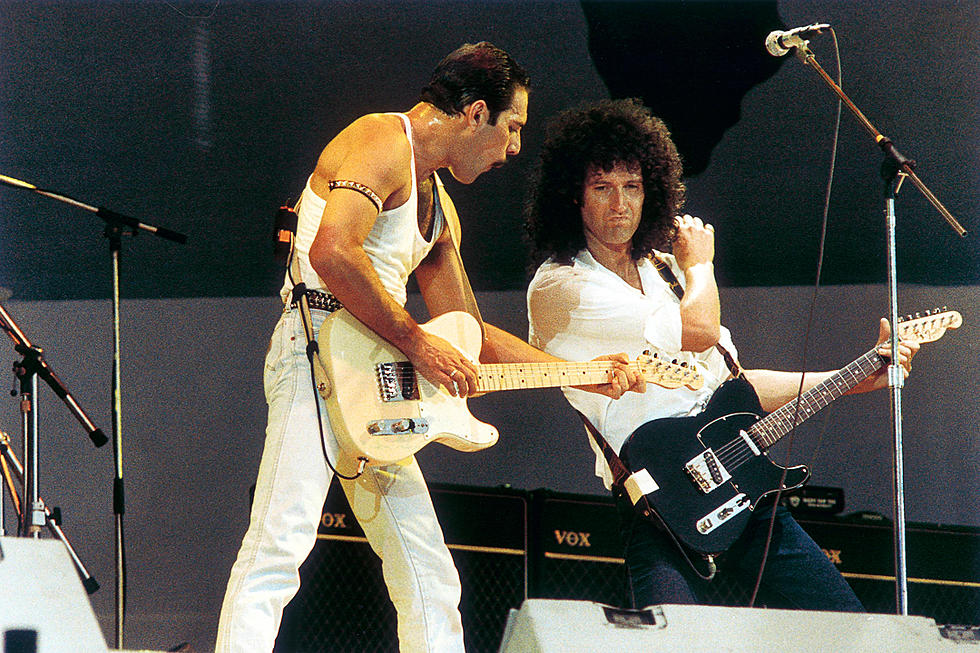
How Queen Stole the Show at Live Aid
Queen followed one of Live Aid's signature moments and, more crucially, took the stage on July 13, 1985 at London's Wembley Stadium, without much expectation. After a run of stylistically diverse records beginning with 1975's career-defining A Night at the Opera, Queen had lost momentum by the early '80s.
Their set was wedged between performances by bigger and more contemporary artists. U2 had just delivered a two-song clinic on how to command a crowd, capped by a majestic 12-minute version of "Bad." After Queen, David Bowie, the Who (in their first performance in three years) and Elton John were scheduled.
Elsewhere that day, the Live Aid bill included Dire Straits (riding high on the success of "Money for Nothing"), Paul McCartney, Sting and Phil Collins.
Then something happened, something singer Freddie Mercury is given much credit for by guitarist Brian May: Queen – rounded out by John Deacon and Roger Taylor – experienced a stunning rebirth, redrawing their legacy in a 20-minute eruption of passion and bravado before an enraptured London audience.
"That was entirely down to Freddie," May marveled years later. "The rest of us played okay, but Freddie was out there and took it to another level."
The fast-moving afternoon performance covered the breadth of the band's catalog, cramming a whole concert's worth of highlights, old and new, into an abbreviated set that included "Bohemian Rhapsody," "Radio Ga Ga," "Hammer to Fall" (Queen's single at the time), "Crazy Little Thing Called Love" and the finale of "We Will Rock You" and "We Are the Champions." "It was," May noted, "the greatest day of our lives."
Mercury was everywhere: at the piano for the beginning of "Bohemian Rhapsody," marching around with his sawed-off mic stand during "Radio Ga Ga" as the Wembley crowd clapped in unison, singing with a reserve of emotion, owning the fans and the moment. It was a virtuoso turn that was also surprising. Where others might have shied away or even made smaller by the moment, Queen rose to the occasion.
Everyone else knew it too. "You bastards," John crowed backstage. "You stole the show!" Queen attempted to build on that momentum, booking a comeback stadium tour in 1986. Sales were brisk, but it would be their final globe-crossing journey with Mercury, who started losing a battle with AIDS around this time.
Along the way, Queen's performance at Live Aid has only grown in stature. "Every band should study Queen at Live Aid," Dave Grohl later enthused. "If you really feel like that barrier is gone, you become Freddie Mercury. I consider him the greatest frontman of all time."
Live Aid 1985 Photos
You Think You Know Queen?





